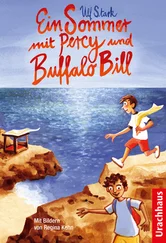Not that you had a best friend. Or a worst enemy – or indeed any particular intimacies or antipathies. For some reason you were made to spend your days among children: you watched them in the playground – their massings, alliances and sunderings, as if they were being blown about by winds you couldn’t feel. They seemed to be a different species, like the things that Dad sometimes showed you through his microscope – alien, though no doubt in some obscure way necessary. Your breathing sounded like a steam engine but theirs was imperceptible, their chests remaining as stiff as the walls. You thought of one of Mum’s favourite sayings, ‘Most people don’t even know they’ve been born,’ and saw your classmates – amorphous, diffuse, floating – as foetuses still. They radiated smugness, serene in their amniotic fluid of months, years, lifetimes, while you had only minutes, seconds, fractions of seconds. Life for them was an endless stream, but for you it had become a succession of countdowns: Coach’s stopwatch had atomized time. The girl next to you in class did nothing but sit and stare, stare and sit: you could have swum two lengths in the time it took her to retie her sandal-straps. Whenever you spoke to anyone they’d blush and stammer, part-frightened, part-thrilled, as if you’d been a talking tree or bird. Your teacher told Dad that the whole school had a crush on you, but you weren’t flattered: you imagined them advancing in a phalanx to flatten and smother you.
You never thought of yourself as being a child. When you made the Regional Junior Squad, now a four-stroke swimmer, you binned your one-eared teddy bear, Buddenbrooks-so-called because he resembled another of Dad’s favourites, Thomas Mann. You dropped ballet. Coach said, ‘We can’t let her arms run behind her legs. Kangaroos can’t swim.’
‘It’s art, not callisthenics,’ said Dad, but the piano lessons had to go too, though not before he’d speculated about getting a Bechstein to float.
‘Strength! Stamina! Suppleness!’ … ‘Stupidity! Stolidity! Senselessness!’ – Dad parodied it in his German voice. He was at every practice, squatting precariously on his camp-stool, oblivious to your trouncing everyone at broken sets, never looking up from his poetry, those bewildering snakes and ladders of seemingly unrelated words and letters. The other parents moaned incessantly about their sacrifices of time and money or jumped around yelling threats or encouragement, chiming in with Coach’s motivational chants: ‘Work to win! Win to work!’
‘Arbeit macht frei,’ observed Dad, finishing the TLS crossword with a flourish. The others called him Mr Stupid, presumably because that was how he made them all feel. You looked at him with a tight, sick feeling, never sure whether you were proud or ashamed.
Training took place first thing in the morning and late evening, before the pool opened to the public and after it closed. School allowed you to miss Prayers and Period One and to sleep through many others. At night you felt you were calming and soothing the water after its ten-hour mauling, as if it were a nervous horse. There was something magical and transgressive about being there, as if you were burglars, spies or ghosts. Reflections danced and shifted on the ceiling like half-visible spirits. The day’s laughter, splashings and shouts seemed to have combined in a continuous echo-pattern, like the barking of dogs: when you surfaced you sometimes feared you’d be ringed by snapping, red-eyed curs. You liked the morning sessions best, as the dawn light crept like a flood tide up the walls and the only sound was an unending soft exhalation and the surface was so calm and glassy that your dive’s cleaving of it seemed to be a greater miracle than flying.
You felt yourself trading molecules with the water in an ever-deepening intimacy that remained volatile, never easy, never secure. In motion you weren’t sure if you were fleeing or in pursuit, swimming towards something or away from it. Sometimes the water was tender, at others it scratched your skin like sand: having caressed you it would suddenly punch you in the gut. One evening, shivering with the flu, nose and eyes streaming, hardly able even to climb on to your block, you found yourself, on entry, completely cured … but next day, feeling back at full thrust, you were drained after thirty seconds, facing hours of unrelieved agony. Increasingly, though, how you felt made no difference to your times: your muscles had taken over and left your feelings and thoughts and your pain, dissociated, to drift away.
As the endorphins kicked in and you torpedoed up and down the pool you often thought of butterflies – sometimes even keeping an eye out for them, as if they too might have decided to switch their allegiance to water. Whether because of Mum’s sprays or global warming they were never to be seen in your garden now. Perhaps you just didn’t have the time to watch for them or perhaps they were avoiding you. Finally, if one had appeared you would have been as surprised as if salmon had begun to nest in the poplar tree. In one of your waking moments at school you’d learnt that the Greek word for butterfly was Psyche: it also meant soul. And there had been a butterfly-goddess, too:
Surely I dreamt today, or did I see The winged Psyche with awaken’d eyes?
You loved Keats but never let on to Dad because you knew he loved him too.
One morning at seven you were all gathered at the side of the pool, listening to Coach: ‘Do your time, do your time! Don’t look at the others. Don’t even think about the others. Just do your time, do your time!’ He made it sound as if you were prisoners, in for a long stretch, with no parole or pardon. Suddenly there appeared behind him a dirty, bristled man, wearing a corded tartan dressing-gown … legs wide apart, leaning back so that his head looked heavenwards, he whipped it open. You all dived, screaming, back underwater, as Dad and Coach dragged him away, but you’d glimpsed that there’d been no hair, no … winkle between his legs, just a bubble-gum-pink expanse: a flash of nothing.
Competition was the price you had to pay for spending so much time in the water. Not that it was particularly competitive: at local, national and junior international levels you just won and won, absently, without any real pleasure. You didn’t like having to turn in races and go back again, as if you’d forgotten something: the 100 metres was only the same 50 twice, the 200, four times. Swimming back through your own wake you always feared that you’d crash into yourself coming the other way. They should have built pools that expanded or contracted to the required length, or huge circular ones in which you’d spiral round until you reached the centre. At the climax of a race your vision would always begin to fog: it was as if you were heading into a shimmering grey light – you’d reach out but it would remain tantalizingly just beyond your hand’s final touch on the rail. Even when you won you were disappointed: you’d look at your empty hands and then have to move out for the next race, although you could feel the water trying to hold you there, clinging to your legs like a lonely, desperate child.
You were also guesting with other clubs, hunting wild card invitations to European meets, but Mum and Dad never came to watch you race: it hadn’t been discussed, just tacitly understood that you all wanted it that way. Coach and the ASA arranged the transport, accommodation and chaperoning. Dad kept up your cuttings book: in among your triumphant progress he interpolated his own imaginings. There were mocked-up headlines: NORTH LONDON GIRL SWIMS TO THE MOON … MERMAID SIGHTED NEAR GRAND UNION CANAL – and photomontages of you with a scaly tail, pursued by Neptune in his Triton-drawn chariot, your goggled, strabismic eyes unaware of three breaking shark-fins and Nessie’s snaky neck, or receiving your five County medals from a Cranach Venus naked except for her jewels and fur hat … and your Junior Gold from Karloff’s Frankenstein monster.
Читать дальше












